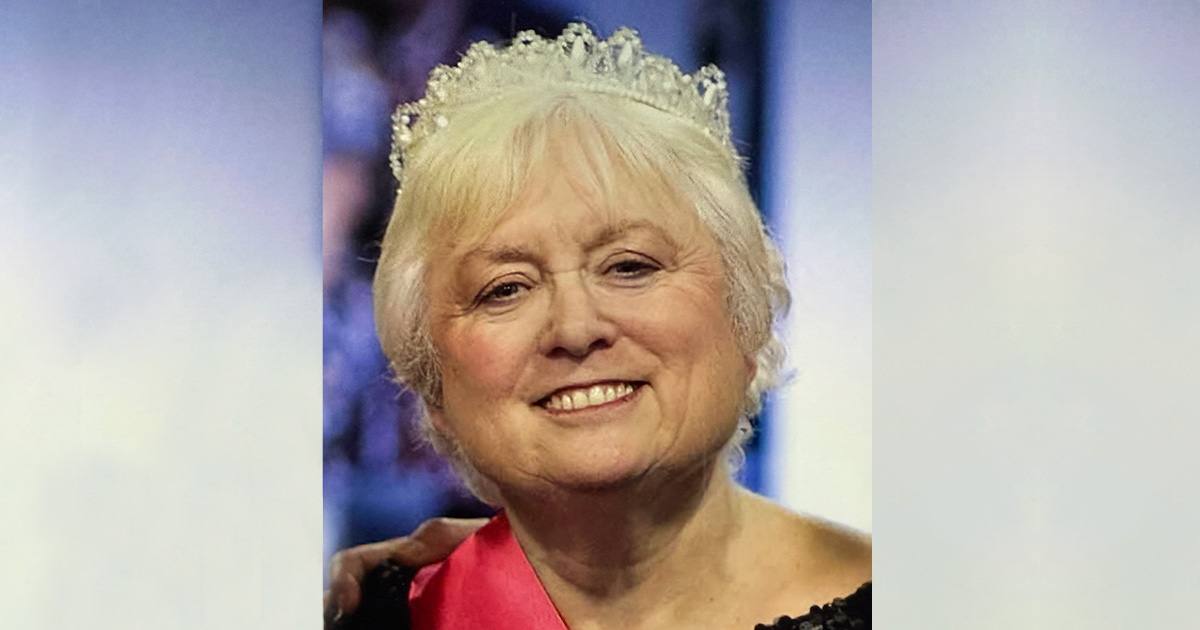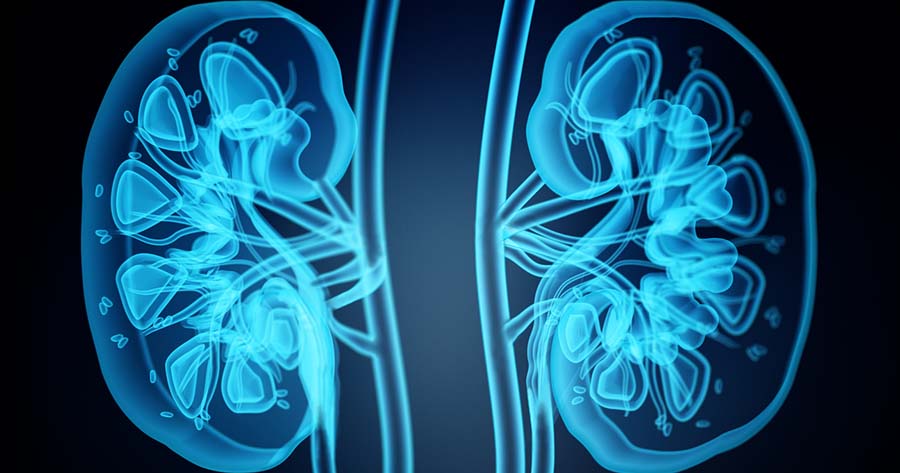When patients are newly diagnosed with diabetes they are often told by the diabetes team: ‘You must be in control of your diabetes – don’t let diabetes control your life’. However, adjusting to diabetes may not be easy because diabetes can be a miserable lifelong disease that impacts upon all areas of life. Daily self-management involves frequent injections, blood glucose monitoring, timing of meals and attention to diet with extra care essential during physical exercise, illness and holidays. Vigilance is necessary to reduce the acute complications of treatment as well as the disease, e.g. severe hypoglycaemia and ketoacidosis, and the long-term complications of retinopathy, neuropathy, nephropathy and cardiovascular disease.
The key to management of a complicated chronic disease such as diabetes is successful self-care. However, many patients seem unable to attain this goal. Why is this? Is it the patient’s fault? Does the fault lie with the diabetes team? Or are there other factors to consider?
These are questions that have recently been addressed at the Royal Bournemouth Hospital by seeking qualitative information from interviews with patients with newly diagnosed type 1 diabetes. This article will considers some of those other factors.
Health belief model
The health beliefs of the individual are important, and the health belief model provides a framework for understanding an individual’s psychological readiness to take health actions. A health behaviour will not be carried out unless the patient values health and is motivated to engage in preventive health behaviour. To do this, he/she must see him/herself as vulnerable and the condition as threatening, and the perceived benefits must outweigh the costs of the preventive behaviour.
This model has been used for understanding and enhancing compliance with diabetes regimens (Rosenstock, 1985; Hurley, 1990; Bond et al, 1992).
Locus of control
Locus of control was first described by Rotter (1966) and was developed from social learning theory. People who expect their behaviour to influence outcomes are described as having a belief in internal control, whereas those who expect outside forces to have greater control have a belief in external control.
External control was described by Levenson (1981) as chance locus of control (‘nothing I can do about my diabetes’) or control by powerful others (this may be family, friends or medical profession). A belief in external control exists when outcomes depend, not on personal control, but on fate, chance or powerful others.
A belief in internal control happens when the outcome is dependent upon behaviour and therefore under personal control. The characteristics of internal control are the ability to discover and use information, a willingness to approach, use and benefit from authority figures and to exert effort to control the environment. Scales have been developed to measure the health locus of control (Bradley et al, 1984; Bradley, 1994).
Self-efficacy
Self-efficacy has been defined as a ‘belief in one’s capabilities to organise and execute courses of action required to meet given situational demands’ (Hurley and Shea, 1992). Self-efficacy refers to personal beliefs of how one can plan and carry out patterns of behaviour that may contain novel, unpredictable and stressful elements. Individuals develop their self-efficacy mostly by cognitively processing information about how much they feel in control of their life and comparing themselves to others. Self-efficacy is associated with diabetes self-care behaviours for individuals on insulin (Hurley and Shea, 1992).
During the Autumn of 1998, 13 patients who had been newly diagnosed with type 1 diabetes during the previous 2 years were interviewed. The semi-structured interviews (Table 1) were taped, transcribed, coded and then categorised into emerging themes. Two interviews stood out as giving completely different views of diabetes (see Case studies 1 and 2).
Case study 1
Male (AC) aged 35, diagnosed March 1998, with fasting blood glucose of 18.5mmol/l, HbAIc of 14.2% and ketones+++. He was referred to the diabetes centre by his GP and started on isophane twice-daily insulin injections as an outpatient. He was taught self blood glucose monitoring and was educated by the dietitian and diabetes specialist nurse over the next few weeks. His symptoms quickly resolved and he was changed to a basal bolus regimen after four weeks. His HbAIc in August 1998 was 6.7% (normal range 4.0–6.5%).
Case study 2
Female (BC) aged 44, diagnosed April 1998, with random blood glucose of 29mmol/l, HbAIc of 14.8% and ketones+++. She was referred to the diabetes centre by her GP and also started on isophane twice-daily insulin injections as an outpatient. She was taught self blood glucose monitoring and was educated by the dietitian and DSN over the next few weeks. Her symptoms resolved and she was put onto a basal bolus regimen after six weeks. Her HbAIc in September 1998 was 7.9%.
Although the diabetes management of the two cases were very similar, the interviews revealed striking differences. AC seemed to have fully come to terms with his diabetes:
‘Diabetes is just something unfortunate that has happened. I don’t feel any less of a person because of it. I just get on with it.’
‘Apart from the injections, diabetes has not made any great differences. It’s fine. It’s something I can easily live with.’
‘I need insulin to stay alive; it’s there, so I will take it.’
‘Insulin is a friend that enables my body to absorb the glucose and give me energy.’
AC is managing his diabetes very well:
‘Blood testing and having four injections a day enables me to know what is going on.’
‘I quickly learnt to vary my doses according to what I am doing and eating. I am not afraid to vary the insulin by a decent amount; for example, if I am having a large meal in a restaurant.’
‘Sometimes I don’t have an injection at all if I am very active.’
‘I have made mistakes by giving too much insulin and gone from high to low and I have also given too little and my blood sugar has been 16 or 19, but you have to go through these experiences to learn.’
AC is in control of his diabetes:
‘I decided that I did not want diabetes to stop me swimming.’
‘I made a decision that diabetes was going to have as little impact as possible upon my life. I would control it rather than it control me.’
‘I take risks and experiment with doses but only after they have been thought through.’
‘I have gone through phases of testing blood sugars four times a day and also times when I have only tested every two or three days. At the moment I am experimenting with eating different foods, so I want to know how that is affecting me so I am testing four times a day. I am doing it intensively but not being a slave to it.’
What were the important factors in coping and managing his diabetes?
‘The evidence of needing insulin is before your eyes. I quickly put on weight and felt so much better, so I don’t have a problem with injecting insulin.’
‘At the beginning I cried and mourned for my past life of doing things and eating things which I thought I would never do again. It was a big shock.’
‘As well as information which was given by the hospital, I went out and got some books from the library. Information and knowledge is power and with something like diabetes you have to take control and dictate what really happens – it’s within your power to keep control.’
‘I have observed that people who cope best with cancer or HIV are people who took control of their lives as much as they could, took a positive attitude and educated themselves about all possible treatments.’
It seems that AC demonstrates an internal locus of control. He feels that he has personal control of his diabetes and he has gained that control by information, knowledge, experience and having access to a healthcare system. AC feels in control of his life and has good use of personal and medical resources. It is his own behaviour, not outside influences, that influences the outcome of his diabetes.
A different picture emerges for BC who does not yet seem to have come to terms with her diabetes:
‘I am one of those people who ignores their symptoms and hope they go away.’
‘I am afflicted with diabetes.’
‘My husband thinks it’s awful for someone who enjoys their food so much to have diabetes.’
‘I still think – I can’t believe this has happened to me, it was a huge shock.’
‘I get angry days.’
Diabetes is controlling BC’s life:
‘I have to eat at set times. Diabetes dominates my routine.’
‘It is a nuisance when you are out for the day and you have to stop at the right time. I always have to test my blood if I am shopping or walking to make sure it is level.’
‘My 17 year old keeps saying – why can’t we have puddings?’
‘One difference that diabetes has made is that as a family we used to get up late at weekends and have a huge brunch. Now I have to get up early, have my Weetabix and close the door when they eat their brunch.’
‘My husband finds diabetes intrusive, e.g. I don’t like my evening meal to be too late now. It wouldn’t worry him if we went to the pictures and then didn’t eat until 10.30 but I can’t do that. I suppose I could if I wanted to, but I don’t like to play around with it,’
‘At the moment, my levels are high and I don’t like them to be like that. I know they would be lower if I did not eat so much and I am eating more at the moment.’
This seems to be a situation in which diabetes is completely controlling BC and her family’s life. BC becomes very emotional when talking about diabetes. There was anger coming through at certain points and some denial:
‘I was very angry and cross when I came to the hospital.’
‘I felt very vulnerable and sensitive.’
‘I felt very angry and felt like saying – how do you know?’
‘I feel like saying – so you would be an expert would you?
‘It’s unfair having diabetes.’
Possible explanations for these contrasting views of diabetes management were sought and some theories were looked at that might give an insight.
The locus of control has been used to explain differences in behaviour. Wallston and Wallston (1982) looked at the relationship between locus of control and health behaviour. A person coping with a chronic condition such as diabetes was most likely to benefit from a high belief in personal (internal) and medical control but a low belief in chance or situational control (external).
Schlenk and Hart (1984) suggested, in a study of patients with type 1 diabetes, that a combination of internal control and a belief in powerful others encourage individuals to believe that they are responsible for their own health and also to recognise when to seek external assistance.
Initially it appeared that BC had an external locus of control because she appears low on personal control, as illustrated by her comments. But on further analysis and consideration, there are certain aspects of BC’s behaviour which suggest that she considers her diabetes management to be under her control and not left to chance. Maintaining her present weight is important to BC.
‘I have not put on a pound and I am determined not to. I know that if I eat and inject more insulin I would put weight on.’
‘Okay, so if I want a cake mid-afternoon, all I need to do is to have more insulin, but I don’t think that is the way for me to go.’
‘The less weight you have, the better diabetes control you have with less insulin.’
It seems that her health belief of the cost and benefit of eating less will enable her to improve her diabetes control. This same health belief could also be responsible for the domination of diabetes on her lifestyle, e.g. not eating brunch, testing while out shopping, and not eating late.
A different picture emerged when BC went on a family camping holiday.
‘I thought the holiday would be difficult but it was dead easy.’
‘It was one of my best times – my blood sugars were consistently level. I injected more insulin when travelling and less when walking and swimming. I also ate a lot less.’
Upon reflection, it may be that BC does have some personal control over her diabetes, places a high value on not gaining weight and is willing to bear the costs of diabetes dominating some of her routine. Emotionally, it appears that BC has not yet fully come to terms with her diabetes. It will be interesting to see whether any differences emerge when she is interviewed again towards the end of this year.
There are many factors that need to be taken into account if patients are to successfully manage their diabetes. Locus of control is one factor, but health beliefs, self-efficacy and the grieving process also have to be considered.
The locus of control theory fits with AC and his internal control of his diabetes, but the self-efficacy model could also be applied. His ability to self-manage his diabetes may be because he has learnt mastery through his own personal experiences and resources. It appears to be a different story for BC. Her health beliefs and the grieving process seem to influence her behaviour. At present it appears that diabetes is a powerful force that is dominating some aspects of her life.
Implications for practice
As educators we encourage patients to assume responsibility for their own care. The challenge is helping individuals develop their own strategies for long-term management of their diabetes.
As nurses we are encouraged to reflect upon our practice and this reflection can be used for PREP. These two contrasting case histories encouraged me to look at psychological theories and models for a possible explanation. By reflection I have learnt possible applications of theories, gained insight into behaviour and hopefully will use this in future clinical practice to listen carefully to what patients are really saying. Theories and models can seem ‘dry’ but take on a life of their own when applied to practice.





NHS England to allow weight-loss injections for prioritised patient cohorts from late June.
5 Apr 2025